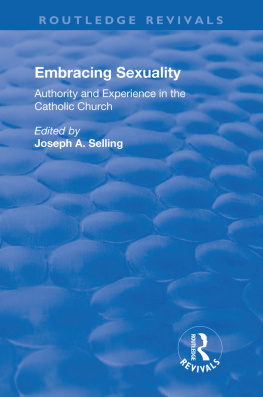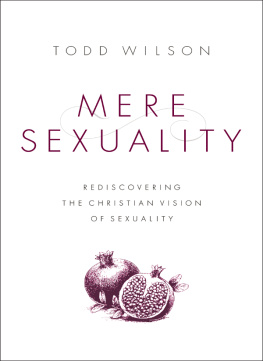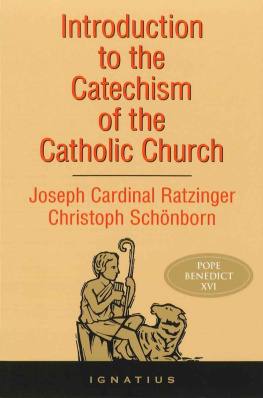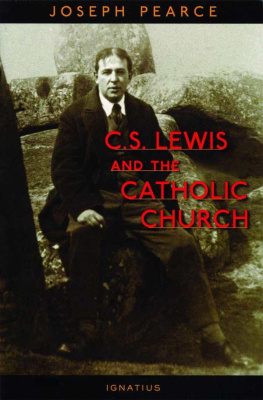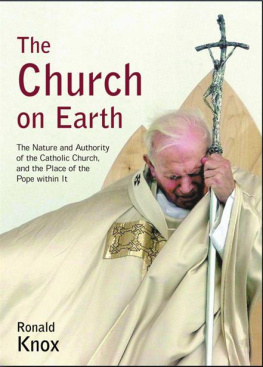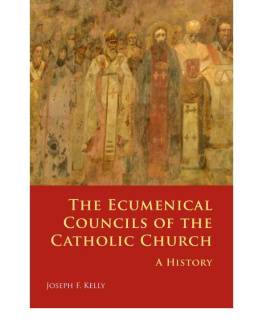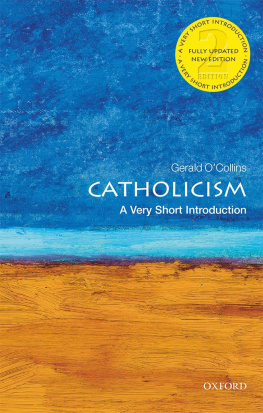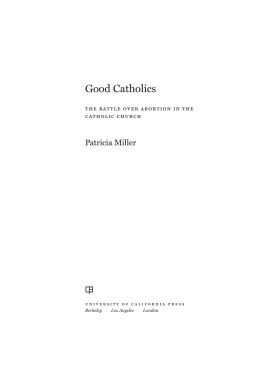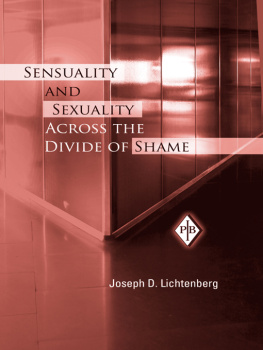Embracing Sexuality
Over the past few decades our experience and understanding of human sexuality has changed remarkably. The women's movement, the gay rights movement, and a growing social tolerance for diverse lifestyles - the landscape in which we view human sexuality - has been greatly altered. Cohabitation, experimental relationships, and remarriage after divorce are all practices that scandalize our grandparents but seem normal to our children. Yet, the mainstream Christian Churches appear to have been little more than bystanders in the midst of this revolution. Roman Catholic teaching on sexual and marital morality has not substantially changed since 1968, the date of Paul VI's encyclical on contraception, Humanae Vitae .
This book represents an attempt to initiate a meaningful conversation between the institutional Church and the laity about some of the fundamental and concrete issues involving human sexuality and relationships. Drawing upon both their professional expertise and their personal experience, eleven authors invite the hierarchy and the whole community of the Church to reconsider their understanding and appreciation for this vital dimension of human existence. The first part of the book suggests three different ways to approach the understanding of human sexuality, in terms of relationship, spirituality and our bodily existence. considers how the Churches might 'embrace' human sexuality in a manner that speaks to contemporary women and men in the context of their lived experience.
Embracing Sexuality
Authority and experience in the Catholic Church
Edited by
Joseph A. Selling
Katholieke Universiteit Leuven
First published 2001 by Ashgate Publishing
Reissued 2018 by Routledge
2 Park Square, Milton Park, Abingdon, Oxon OX14 4RN
711 Third Avenue, New York, NY 10017, USA
Routledge is an imprint of the Taylor & Francis Group, an informa business
Copyright Joseph A. Selling 2001
All rights reserved. No part of this book may be reprinted or reproduced or utilised in any form or by any electronic, mechanical, or other means, now known or hereafter invented, including photocopying and recording, or in any information storage or retrieval system, without permission in writing from the publishers.
Notice:
Product or corporate names may be trademarks or registered trademarks, and are used only for identification and explanation without intent to infringe.
Publisher's Note
The publisher has gone to great lengths to ensure the quality of this reprint but points out that some imperfections in the original copies may be apparent.
Disclaimer
The publisher has made every effort to trace copyright holders and welcomes correspondence from those they have been unable to contact.
A Library of Congress record exists under LC control number: 2001087675
ISBN 13: 978-1-138-70473-2 (hbk)
ISBN 13: 978-1-315-20254-9 (ebk)
Tlus collection of essays had its origin in two seminars that took place at Sarum College, Salisbury, in December 1999 and March 2000. The Sarum Seminars came into being as part of a larger project in Great Britain dedicated to "Authority and Governance in the Church". That project began in 1997 under the auspices of the Research Centre of The Queens Foundation for Ecumenical Theological Education in Birmingham. The theme of this undertaking was to move "from confrontation to conversation" and represented an attempt at open dialogue between representatives of the governing structures of the Church and the faithful on a wide range of issues.
After the renewal of the Second Vatican Council, many people felt that an openness had been created within which a new style of collaboration would take place and all the members of the faithful would be able to participate. Within a relatively short time after the council, however, many felt that the hopes for a new sense of collaboration and consultation were not being realised. An increasing number of issues appeared to be dealt with in a manner that resembled the pre-conciliar period. Not a few observers have speculated that this course of events began in 1968, with the promulgation of Paul VI's encyclical on the regulation of fertility, Humanae Vitae .
In the time since the council, however, many more issues have surfaced in just about every area of social and private life. Two factors seem to have played an important role in this, namely, the accelerating advances made in the sciences, especially medicine and communications, and the rapidly changing customs and mores which, at least in part, have been the result of those advances. Although a number of important issues facing the Church today are of an explicitly ethical nature, many more issues have surfaced, ranging from disciplinary practices to policy positions, all of which would appear to benefit from the input, the experience and the expertise of the ordinary members of the community. And yet, most of the faithful feel that they rarely if ever have an opportunity to collaborate in the decision and policy-making processes of the Church to which they belong.
The parent project on "Authority and Governance" stimulated a number of sub-projects, one of which was dedicated to exploring the areas of human relationships and human sexuality in regard to Church teaching. A group of laypersons, including representatives of the sponsoring organisations and experts in the field of inquiry, came together in February 1999 to discuss the possibilities for the sub-project. The authorities at Sarum College graciously offered the use of their facilities for this and the subsequent meetings of the seminars.
The first task of the preparatory group was to determine the goal of the seminars and to outline a procedural and topical approach. In the spirit of moving from "confrontation to conversation", it was felt that it was best to avoid any polemics or direct dispute with well known positions of the magisterium of the Church on issues related to relational and sexual morality. For that reason, there would be no systematic presentations of those current positions. It was also felt that the current teachings of the magisterium were well enough known not to need repetition. In many ways, it was the generally widespread knowledge of these positions that formed the basis for the need for a "conversation" in the first place. For these positions had been formulated in such a way that they did not adequately reflect the experience and understanding of the issues on the part of the faithful.
The members of the preparatory group shared the conviction that while most adult Christians accept sexuality as a "normal" part of life, most of the traditional teaching of the Church seemed to be based upon an exaggerated sense of danger, even fear, with respect to sexual matters. They believed that the greatest single step forward that could be made in renewing relational and sexual morality would be simply to approach these aspects of human life in a positive manner, as primarily in service to human relationships. Human sexuality, in and of itself, needed to be accepted, appreciated and celebrated by the Church as a gift of God and an occasion of grace.
If Vatican II could describe marriage as an occasion for mutual sanctification, then sexual relations should be characterised as participating in that sanctification. If all human relations can in one way or another be characterised as "sexual", because all human persons participate in the experience of being-a-woman or being-a-man in the world with others, then sexuality itself is not simply something good, it is an intimate part of what it means to be a human person and must therefore be attended to in all our relations.


